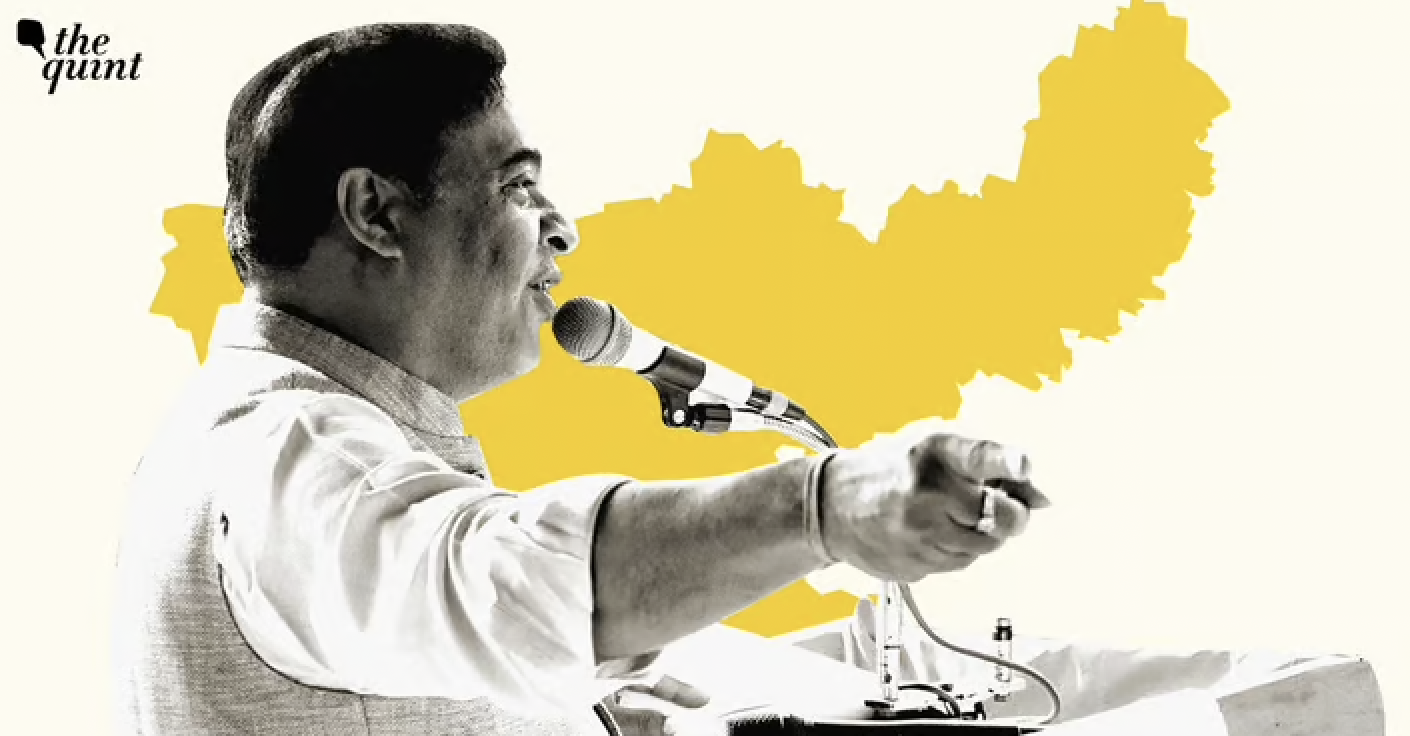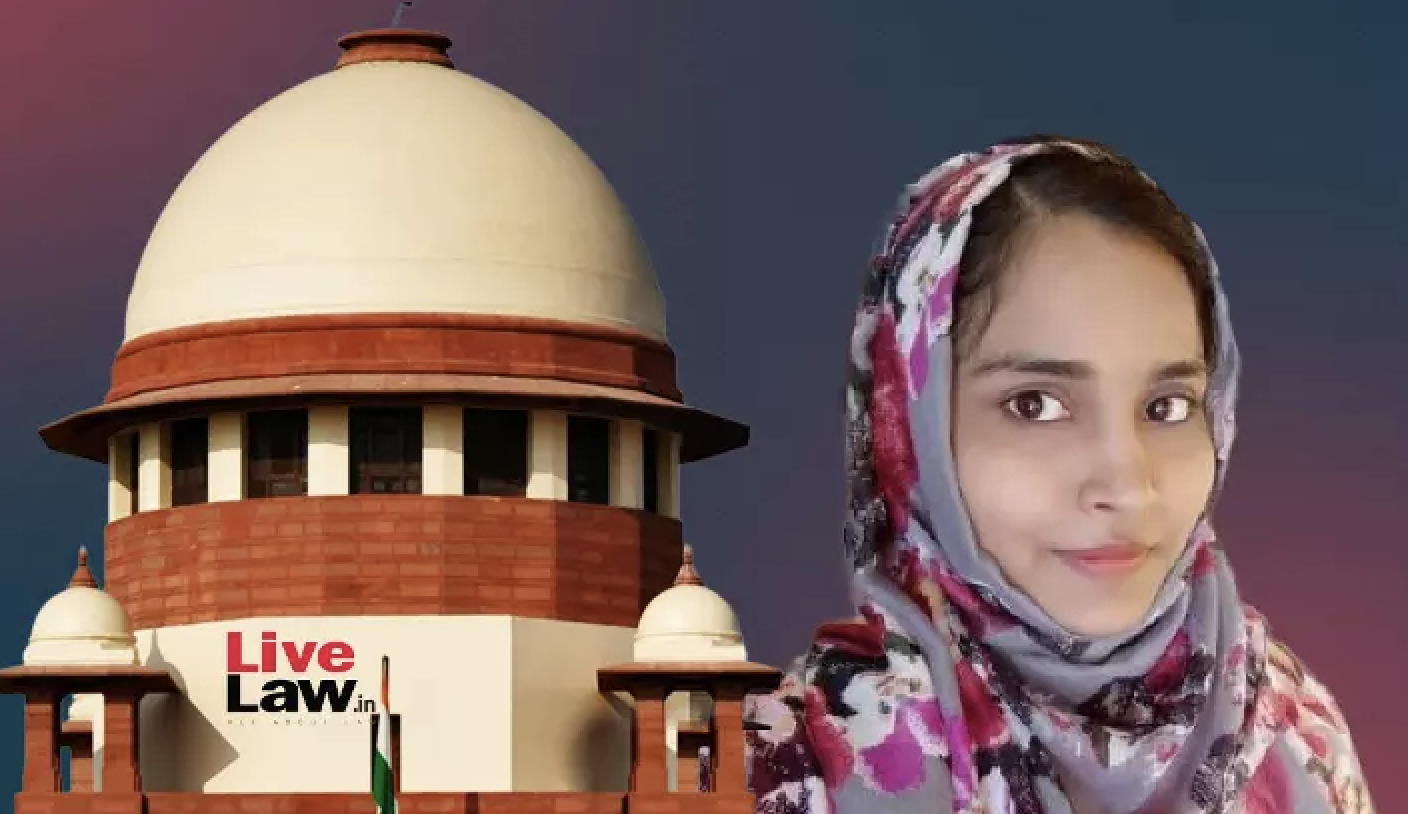
The recent online auction of Muslim women via a mobile application by the name of Bulli Bai that put up journalists, university students and activists, including the 65-year-old mother of Najeeb Ahmed, a hate-crime victim, and Bollywood actress Shabana Azmi “on-sale” has sent shock waves across the country.
However, the “shock” in itself is rather unsettling- it points to the fact that hundreds of acts of microaggressions and Islamophobic violence perpetrated on Muslim women in India every day that are passed off as trivial and innocuous have disastrous repercussions. We as a nation have jeopardised the most rudimentary human rights of our Muslim citizens by constantly putting their humanity to test under the dangerous garb of hypernationalism.
It thus becomes crucial for us to collectively examine how deep the triangulated rot of misogyny, capitalistic dehumanisation and anti-Muslim hatred has percolated the nation, and make amends before it’s too late.

Market misogyny: Commodification of women through fetishisation
While originally seen in the context of resources made tradeable in the capitalist market, commodification extends itself to human bodies that are sold as objects with a certain “market value” attached to them. This nurtures, and in turn, is nurtured by a paternalistic environment of hypermasculinity and cis-male entitlement over women’s bodies.
This highly exaggerated and stereotypical performance of masculinity thrives off sexual objectification and violence towards women, especially those belonging to cultural and gender minorities. Evidence found on Bishnoi’s laptop points to the fact that he was addicted to porn and specifically fetishised Muslim women.
In present-day circumstances, gender-based offenses have become so routine that the common consensus dictates that only fanaticism is a criminal offense. The instrumentality of porn is noteworthy in shaping a flawed perception that directly serves the cis-heteronormative system and in extension, cis-het men. The very notion that men receive pleasure as a response to women receiving pain or being dominated is horrifying and should be deeply concerning. By taking away their human right of self-determination and bodily autonomy, one sided fetishisation basically seeks gratification by alienating women and other gender minorities from their own decisions.
We mustn’t forget that the knot of misogyny and communal hatred is systemically backed, and thus, is also deployed by women who endorse the agenda of majoritarian oppression just as often. In this case too, an 18 year old woman hailing from Uttarakhand, lent an active hand in running the online hate campaign.
More importantly, the mainstream media that works hand in hand with an oppressive regime dictates who has authority and who does not, who is permitted to use violence and who will be subjected to it. With extensive genres dedicated to various forms of porn, it does not come across as a coincidence that we witness these expressions of violence against women in real life.
While evaluating the Bulli Bai case and violence against Muslim women in the country at large, it becomes integral to understand that the male gaze not only conditions and dictates attitudes about sex and gender but further intensifies deep-rooted male-chauvinistic, hyper nationalist values of an oppressive regime.
The fascist factor
Sulli Deals is not a stand-alone incident of dehumanising violence. It is one of the several harrowing culminations of a fascist state that has been feeding off the act of ‘othering’ ever since it came to power. In phenomenology, the concept of othering is seen as the act of deliberately and effectively alienating an individual, community or group on the basis of real or imagined difference. It is steeped in prejudice and more often than not, leads to marginalisation and persecution of the “othered” group.
John Powell describes othering as an unconscious process based on the conscious or unconscious assumption that a certain identified group poses a threat to the favoured group. It has been deployed as a cunning political tactic to divide, dehumanise and consequently, rule in fascist regimes throughout history.
The conundrum of cultural hegemony this particular case presents us with is that the main culprit, Neeraj Bishnoi choose to target Muslim women in particular. The whole act reeks of violent sexualisation and portrayal of women from an oppressed religious minority as “sellable”. Similar to another nation under genocidal attack- Katherine Wehby, in her paper titled “The Jewess Question: The Portrayal of Jewish Women in Nazi Propaganda”, underlines how the Third Reich used an unthinkable amount of visual propaganda to dehumanise Jews and glorify the pure Aryan identity as means to solidify their political power.
This othering and dehumanisation was two-pronged- one half parroted Jewish men as “predators” aiming to seduce women of the ‘pure race’, whereas identities of Jewish women were undermined as being sexually promiscuous and thus, impure. They were dehumanised through the medium of propaganda posters and texts that were popularised among the public to separate “them” and “us”. Striking parallels can be drawn between the experiences of Jewish women in Nazi Germany and Muslim women in present-day India- shaping public perception of minority communities has now taken the form of “Sulli deals” and “Bulli bai” apps on git-hub. Muslim men too are constantly peddled as predatory, their fundamental right to live and love with dignity severely crippled by the new “love Jihad” laws and widespread communal lynchings.

When two identities are made to exist in disharmony, one class oppresses the other, and the ruling class tries to the best of their abilities, to mouldpublic bias in their own favour. This is done by portraying the people they oppress as sub-humans. “Sulli deal” and “Bulli bai” apps demonise Muslim women by “auctioning” them, threatening their privacy and undermining their autonomy and agency.
This intensifying hate has inexorably infested the public so much so that Hindu women are placed above Muslim women. Similar to this, under Nazi rule, Jewish women were portrayed in a similar structure, with Jewish women placed beneath Aryan women. Again, this heinous attack is not to uplift Hindu women but to thrust Muslim women far down to the point of dehumanisation and to perpetuate hate among the public.
We are under the illusion that this is a solitary example of one singular issue. We fail to see that this contentious issue is nothing but the spills of hate that is brewing within our country. The forces of reason have been engulfed by the illusion of an “Akhand Bharat”. One must remember that genocide does not just “happen”. It is induced through circumstances that are specifically designed to create a climate in which genocide has already been normalised and encouraged.
Gregory Stanton, President of Genocide Watch, elaborates the ten stages of Genocide, in which dehumanisation is placed on the fourth. It is perturbing to think that the present government, with its aim to solidify the Hindu identity that is frightfully conflated with nationalism is not far behind.
Muslim women have become routine subjects of sexualised abuse, dehumanisation and fetishisation. From comment sections on social media infested with misogyny and anti-Muslim hatred to death threats, it is in plain sight how new-age technology is being weaponised to silence and suppress Muslim women from raising their voices against India’s hyper-nationalist regime. In fact, the abuse has become so normalised that something as heinous as a human auction is still being passed off as a “prank gone wrong.”

Islamophobia and misogyny coalesce: Muslim women doubly disadvantaged
The crux of the topic still revolves around “Bulli Bai” not being an isolated incident where Muslim women in our country feel threatened. We must recall and remember recent acts of violence that undermine their humanity- especially those who stand up to state-sponsored violence and propaganda against the community, who are exposed to vicious and debilitating attacks on a daily basis.
During the CAA-NRC protests in late 2019, Muslim women were at the receiving end of state-endorsed police brutality. In Shaheen Bagh, over 2000 women from all walks of life who sat in the bitter cold to protest and demand their human and constitutional rights for over a month were parroted as “sell-offs”, or paid protestors.
However, these baseless accusations and doctored videos made viral on the internet are seldom without purpose- they all seek to parrot the victims as the violators, to ultimately normalise abuse against them. While recalling the dehumanising violence that is passed off as “online trolling” nowadays, one cannot forget Safoora Zargar, the Jamia Millia Islamia scholar and activist who was booked under the draconian UAPA law.
Pregnant at the time of her arrest, her integrity and dignity was severely undermined by trolls that sought to malign her character and invade her private life. Similar to what happened to the women of Shaheen Bagh, this character assassination was done with the aim to justify terrorising “anti-terror” laws like the UAPA that often break the constitutional ethics they are meant to uphold. Moreover, recent data released by the NCRB shows that the minority Muslim population in India is 16.6 percent convicts, 18.7 percent undertrials and 35.8 percent detenues. This is very telling of how the Muslim minority bears the disproportionate brunt of policing in the country, be it socio-moral, or institutional.

Years worth of repair needed
However disturbing, the Bulli Bai incident is not the first time the right-wing has tried its level best to silence the voices of Muslim women by trolling them into shame. A recent report by The Wire has revealed how the IT Cell of the ruling party, has via the means of another online application ‘Tek-fog’, made over 22,000 hate tweets against renowned journalist Rana Ayyub in the year 2021 alone.
An eerily similar conclusion can be drawn from the recurring results these cases present us with- technology has become the weapon of choice to run this fascist hate campaign and target India’s religious and cultural minorities, and Muslim women have always been placed at the very tip of its receiving end.
Despite all this, it is truly appalling how this still does not appeal to the consciousness of the general mass. It is the need of the hour to overcome the chilling effect brought upon the civil society and not let another crucial civil society member be so mercilessly scapegoated at the altar of hypernationalism. After all, the elephant in the room cannot be brushed under the carpet- it has grown far too glaring and far too heavy for us to ignore. It is high time we addressed it- otherwise, each one of us will inevitably trip and fall, if not today, then tomorrow.
This story first appeared on feminisminindia.com





